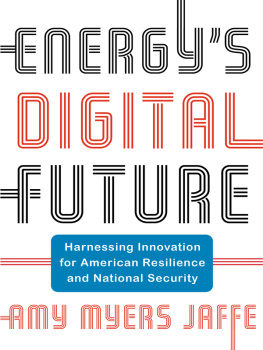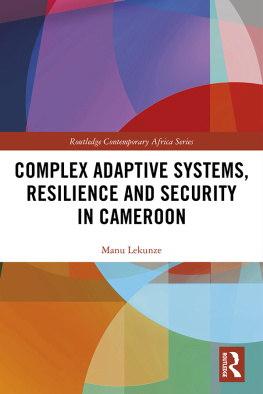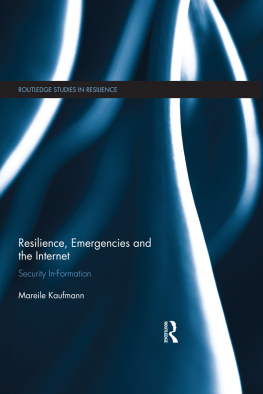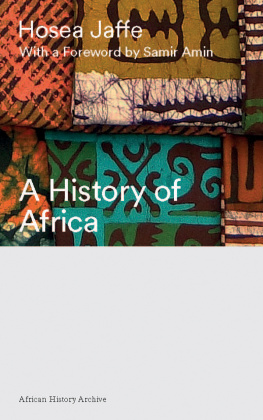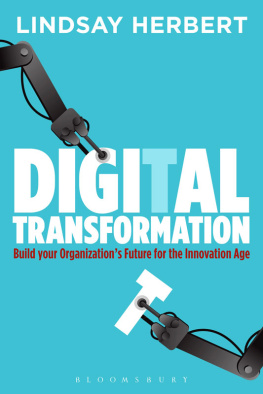Table of Contents
ENERGYS DIGITAL FUTURE
CENTER ON GLOBAL ENERGY POLICY SERIES
CENTER ON GLOBAL ENERGY POLICY SERIES
Jason Bordoff, series editor
Making smart energy policy choices requires approaching energy as a complex and multifaceted system in which decision makers must balance economic, security, and environmental priorities. Too often, the public debate is dominated by platitudes and polarization. Columbia Universitys Center on Global Energy Policy at SIPA seeks to enrich the quality of energy dialogue and policy by providing an independent and nonpartisan platform for timely analysis and recommendations to address todays most pressing energy challenges. The Center on Global Energy Policy Series extends that mission by offering readers accessible, policy-relevant books that have as their foundation the academic rigor of one of the worlds great research universities.
Robert McNally, Crude Volatility: The History and the Future of Boom-Bust Oil Prices
Daniel Raimi, The Fracking Debate: The Risks, Benefits, and Uncertainties of the Shale Revolution
Richard Nephew, The Art of Sanctions: A View from the Field
Jim Krane, Energy Kingdoms: Oil and Political Survival in the Persian Gulf
ENERGYS DIGITAL FUTURE
Harnessing Innovation for American
Resilience and National Security
AMY MYERS JAFFE
Columbia University Press
New York
Columbia University Press
Publishers Since 1893
New York Chichester, West Sussex
cup.columbia.edu
Copyright 2021 Amy Myers Jaffe
All rights reserved
EISBN 978-0-231-55184-7
Library of Congress Cataloging-in-Publication Data
Names: Jaffe, Amy Myers, author.
Title: Energys digital future : harnessing innovation for American resilience
and national security / Amy Myers Jaffe.
Description: New York : Columbia University Press, [2021] | Series: Center on
Global Energy Policy series | Includes bibliographical references and index.
Identifiers: LCCN 2020041676 (print) | LCCN 2020041677 (ebook) |
ISBN 9780231196826 (hardback) | ISBN 9780231551847 (ebook)
Subjects: LCSH: Energy policyUnited States. | Energy industriesTechnological
innovationsUnited States. | Automation. | Big data. | Energy security
United States. | National securityUnited States.
Classification: LCC HD9502.U52 J337 2021 (print) | LCC HD9502.U52 (ebook) |
DDC 333.790285dc23
LC record available at https://lccn.loc.gov/2020041676
LC ebook record available at https://lccn.loc.gov/2020041677
A Columbia University Press E-book.
CUP would be pleased to hear about your reading experience with this e-book at .
Cover design: Noah Arlow
Contents
A few years back, I was sitting in the cafeteria of the Google headquarters with longtime friend Alexander Andy Karsner. He suggested I needed a change. We kicked some ideas around. I said I would like to write a book. We both felt at the time that Silicon Valley was on a collision course with the Texas oil industry and that neither knew enough about the other to make sensible future investment decisions on new energy technologies. Andy and I had organized an academic retreat for leaders from both sectors at an inn in Napa Valley. Each side was shocked and amazed to hear what the other was doing. Afterward, Royal Dutch Shell pursued a joint venture with one of the hydrogen firms in attendance. Other companies pursued relationships with big-data providers. It was as though two meteors had collided, and neither could go right back onto its old trajectory.
Andy has guided my education on the intersection of tech, energy, and climate change for several years now. To get this book off the ground, we organized a study group of business leaders, leading academics, and policy makers on the Tech Enabled Energy Future as part of my work at the Council on Foreign Relations. The study group greatly expanded my knowledge, facilitating the contents of this book. I am grateful to the study group for its dedication to the purpose of open-minded learning and to the companies that hosted us on our Silicon Valley tour, including Applied Materials, Google X, and Carbon 3D. My thank-you on the study group exercise would not be complete without mentioning Evan Michelson and the Alfred P. Sloan Foundation, which generously supported the study group, this research, and my other research over multiple years and three academic institutions. Nicole Alexiev and Shelbi Sturgess provided organizational muscle to the study group endeavor while my research associates Dylan Yalbir and Ben Silliman provided important research contributions, as did my fantastic summer intern, Stefan Koester. I also thank Lucy Best and Michael Collins for their outstanding research contributions on Chinas energy strategy and Liz Economy and Steven Lewis for their expert counsel on Chinas unique internal politics.
I want to thank the Council on Foreign Relations for the opportunity to work on a book project. I also thank Caelyn Cobb, my editor at Columbia University Press, for her steady guidance and Patricia Dorff, who spent countless hours advising and encouraging me during the drafting process. I offer a special thanks to my research associate Gabi Hasaj, whose intervention on the challenge of completing a manuscript in the middle of a pandemic was invaluable.
I also owe special thanks to friends and mentors who have played a guiding role in the process of researching and writing. It is only fitting that Edward Morse, my longtime mentor and friend, was the first person to read the manuscript and give treasured advice. Jason Bordoff, director of the Center on Global Energy Policy at Columbia University and an enthusiastic friend and supporter, also provided much appreciated encouragement for the book project and a frequent forum at Columbia to try out my new ideas regarding tech and peak oil demand. My dear friend Alison Cowan was instrumental in guiding me into the excitement of sleuthing the mysteries of the Edison-Ford partnership on an electric vehicle and other archival treasure hunts, and we are both indebted to Paul Israel, director and general editor of the Thomas A. Edison papers project and research professor at Rutgers University.
Several of my academic research collaborators offered significant research contributions to the book, notably including Lew Fulton, Daniel Scheitrum, and Zane McDonald for their intrepid persistence to our joint modeling on peak oil demand. Other important research collaborators include Kelly Sims Gallagher, Paul Griffin, Joan Ogden, Mahmoud El-Gamal, Likeleli Seitlheko, Hany Abdel-Latif, Marianne Kah, Rosa Dominguez-Faus, and Nathan Parker. Steve Currall and Jagdeep Bachher gave me the time and platform to pursue my interest in the intersection of sustainability, climate change, and finance and helped me think outside the box on what the future might bring. Their insights were supplemented by my ongoing discussions with Joe Barnes, Rene Aninao, Andrew Lebow, Matt Rogers, Jareer Elass, and Albert Lee.

